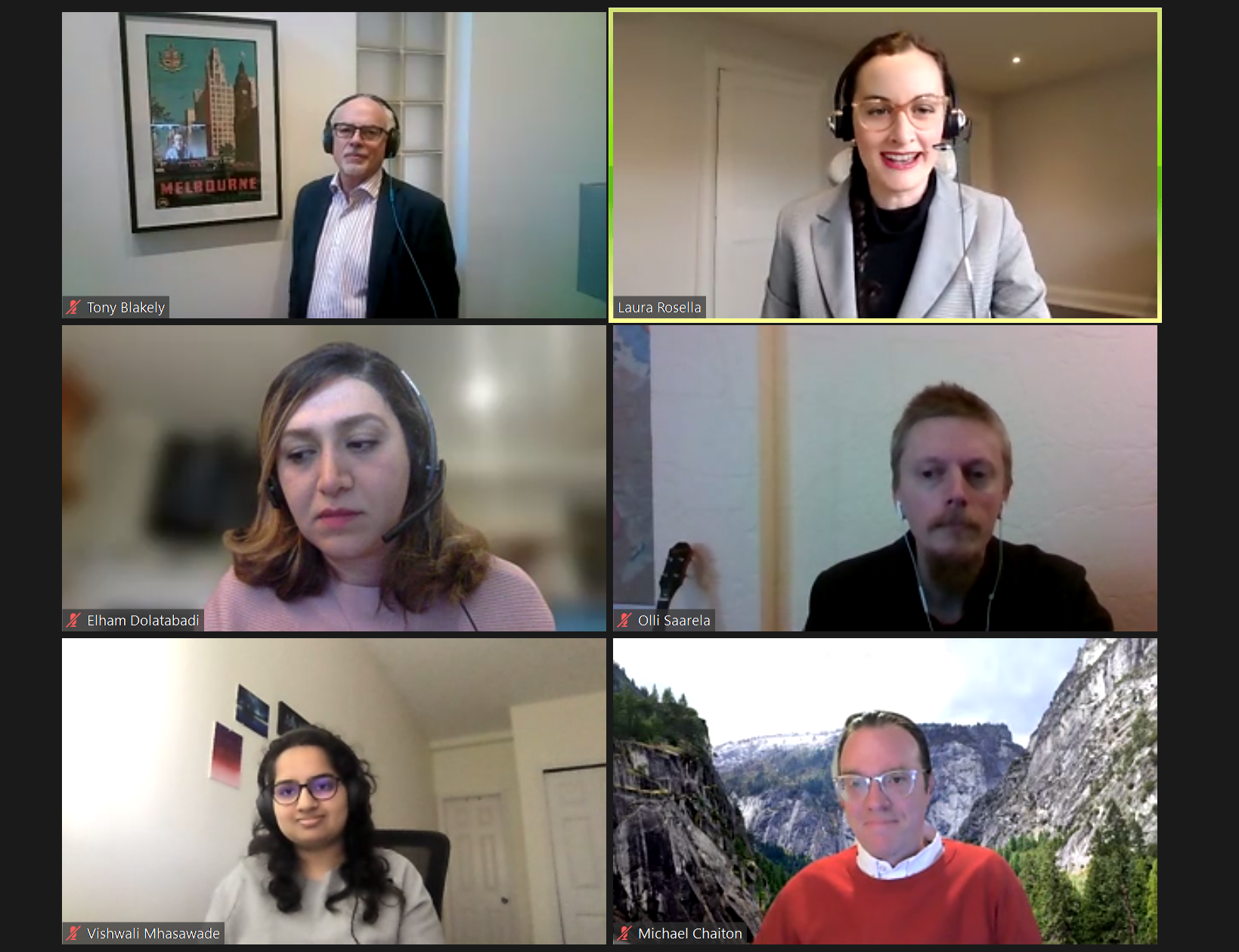In response to the Dalla Lana School of Public Health’s commitment to use data science, artificial intelligence, and emerging technologies in informatics and analytics to improve population health and health system performance, the DLSPH and the Centre for Addiction and Mental Health (CAMH) co-hosted our second “Conversations in AI and Health” online event, on April 21st. The session attracted more than 170 participants including viewers from across Canada and the United States, as well as Mexico, Australia, the UK and Germany.
The AI and Health conversations stem from the School’s larger Data Science Interdisciplinary Research Cluster, spearheaded by Dr. Laura Rosella, which aims to provide thought-provoking conversations on data science in the context of population and public health.
Dr. Michael Chaiton from CAMH introduced Dr. Tony Blakely, from the University of Melbourne School of Population and Global Health, who delivered a stimulating and inspiring keynote on machine learning and causal inference with reflections from his International Journal of Epidemiology paper, “Reflection on modern methods: when worlds collide – prediction, machine learning and causal inference”.
Despite joining us from Australia in the very early hours of the morning, Dr. Blakely was not short of enthusiasm. Dr. Blakely opened his talk with a discussion on the importance of imparting critical thought in applications of machine learning. In doing so, Dr. Blakely highlighted that “machine learning does not know the causal structuring of the data”. But prediction and causal inference methods are coming together in new and exciting ways. Prediction can be used as a processing step in causal inference methods, with machine learning “backing up the epidemiological bus”.
The session was moderated by Rosella who said “I think it is important, when we do this work, to talk to people from different disciplines”. Our interdisciplinary panelists included Dr. Olli Saarela (Biostatistics), PhD Candidate Vishwali Mhasawade (Computer Science), and Dr. Elham Dolatabadi (Machine Learning), who provided context and insight into multilevel fairness and causal questions, the importance of causal inference in machine learning, and using causal discovery to draw out causal relationships from data. The panel discussed the importance of identifying sources of bias embedded at individual and population levels (i.e., different structural factors) and how we can account for these when making predictions. Vishwali noted that this is an important and evolving area for developing efficient methods to mitigate biases and improve health equity. Panelists noted that growing numbers of machine learning and computer scientists are interested in causal inference and machine learning applications.
This seminar left us with many burning questions, undoubtedly a testament to the complexities and insights to be gained from incorporating new methods for prediction, machine learning, and causal inference.
Missed this thought-provoking conversation? Not a worry. The full event recording can be found here.

